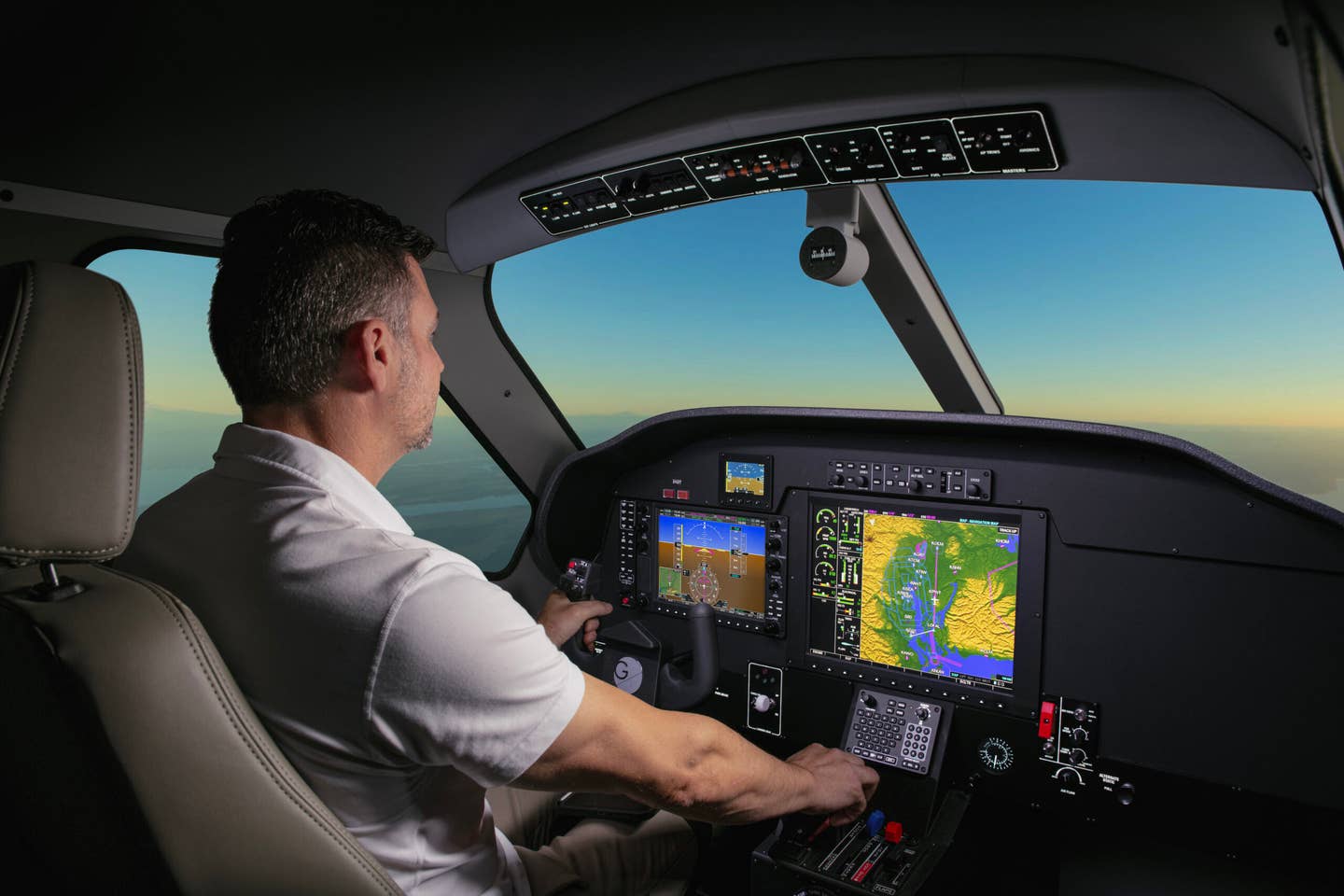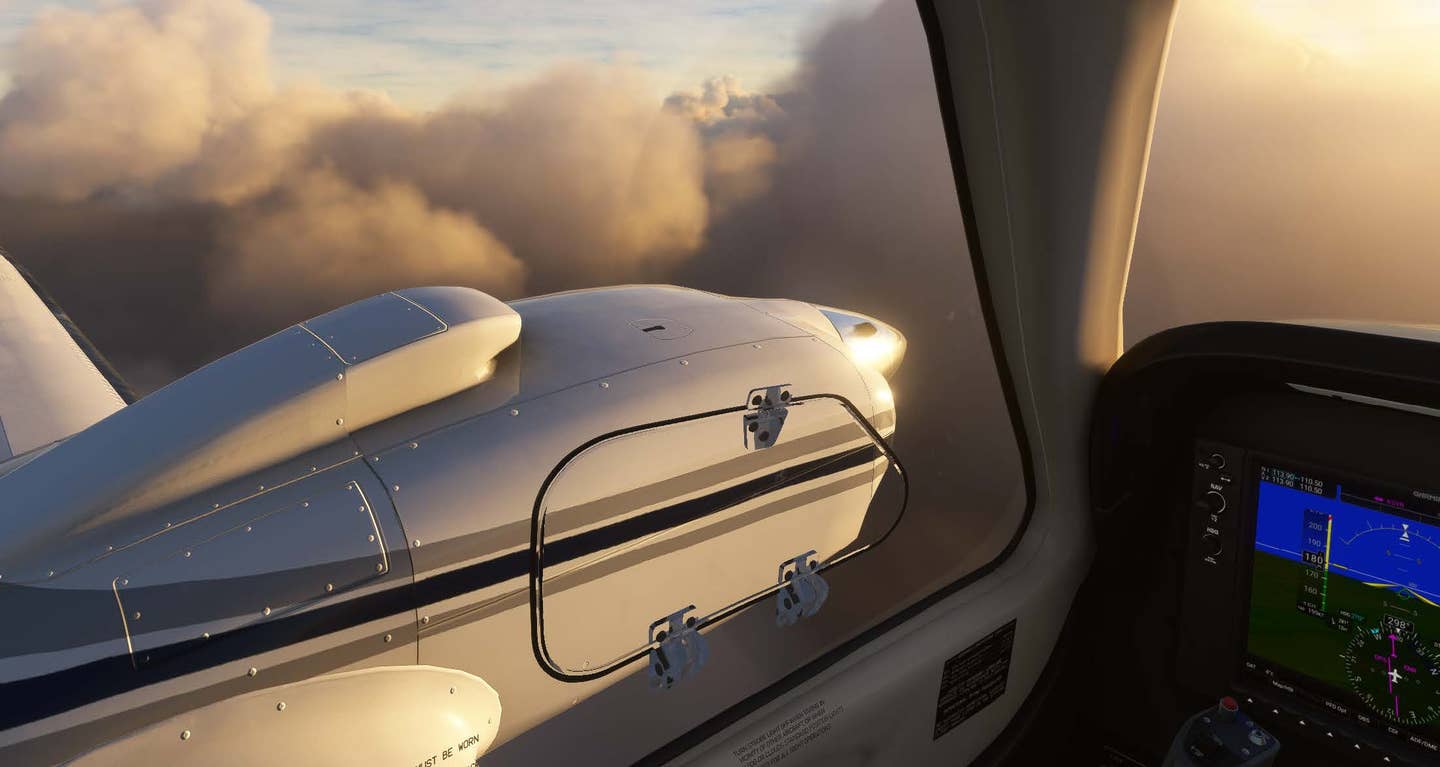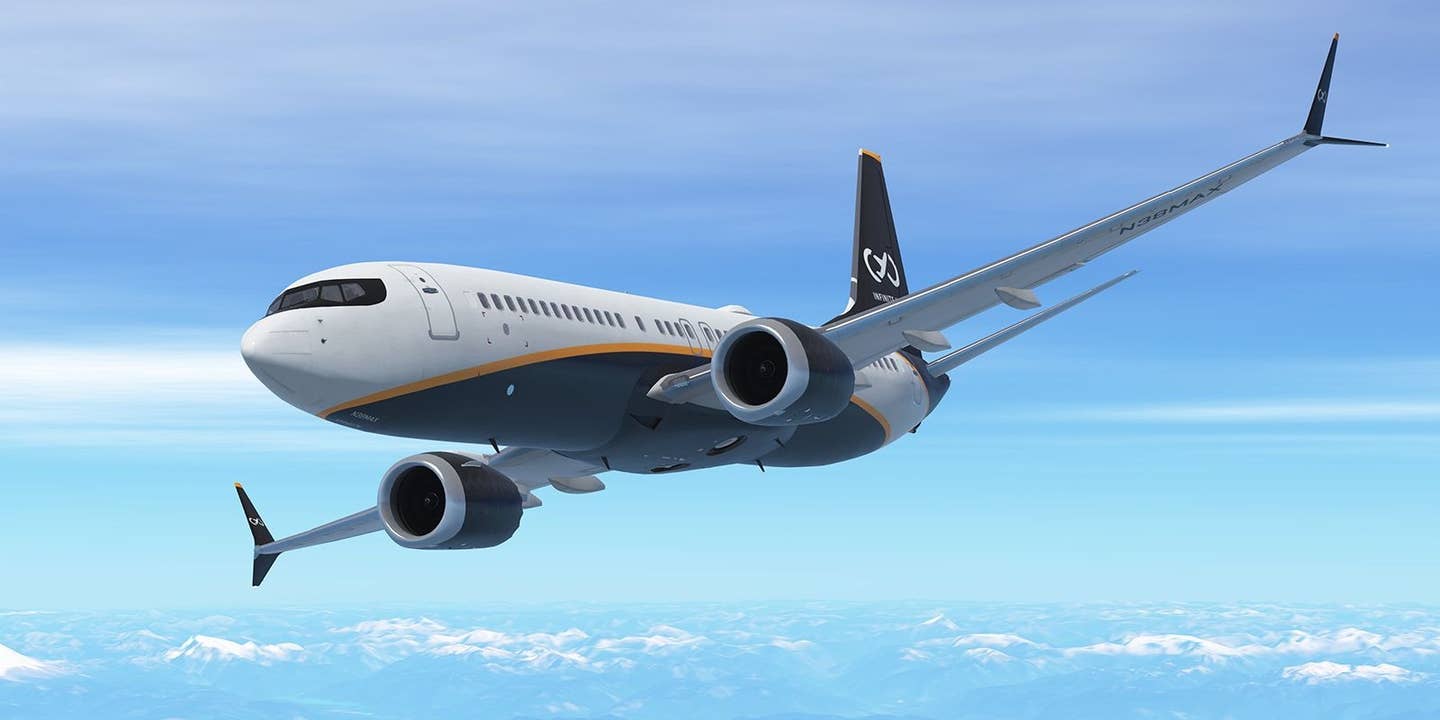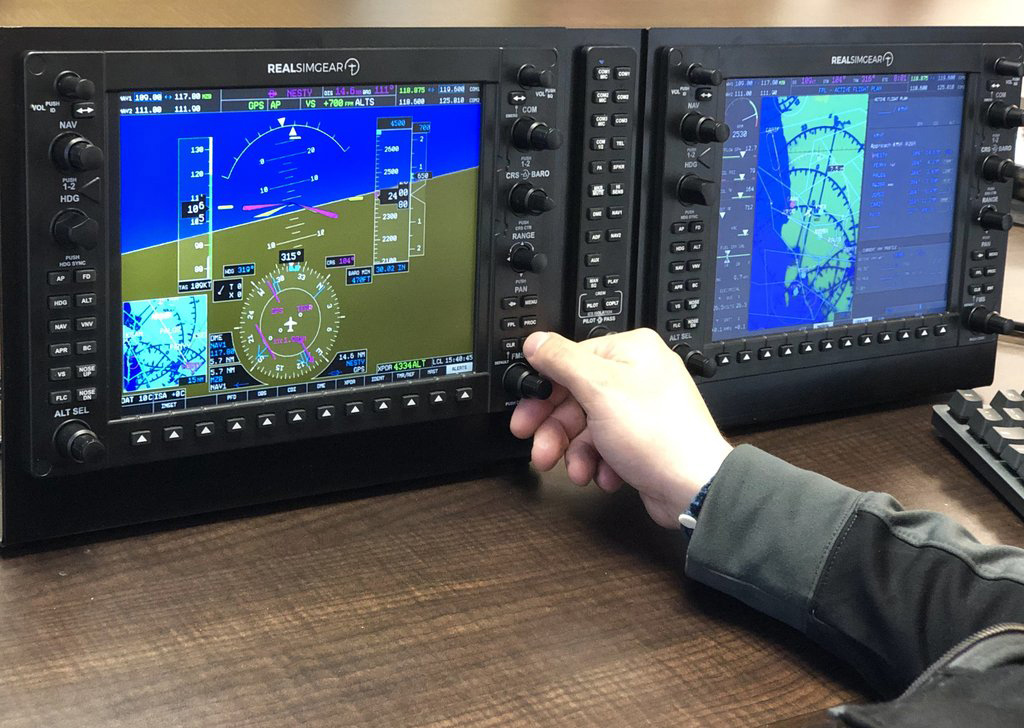Exploring the Flysimware Lear 35A for MSFS2020
The corporate jet add-on is an unanticipated gem.
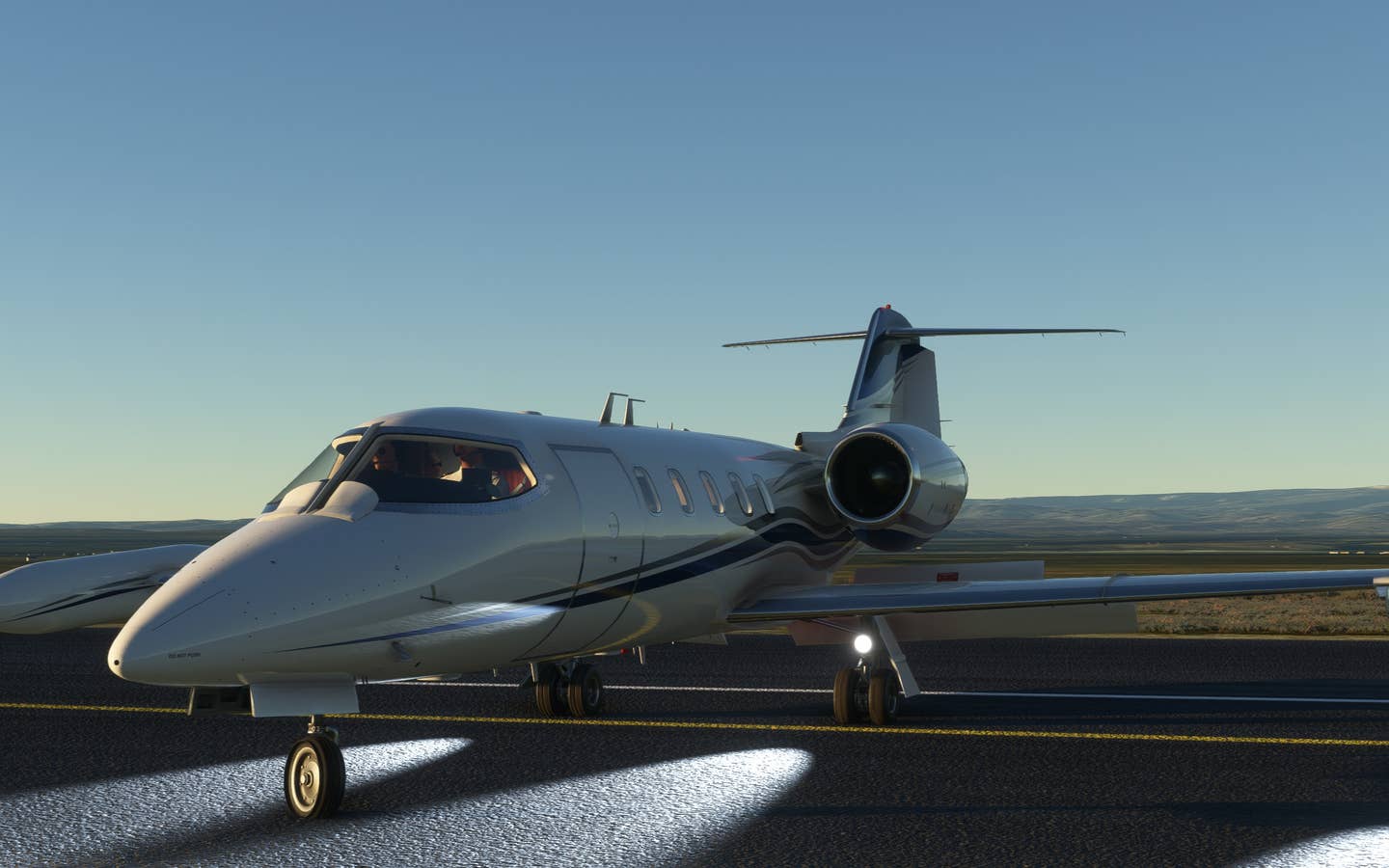
The newly released ‘early access’ Flysimware Learjet 35A is all the rage. [Courtesy: Peter James]
Every once in a while, an “Easter egg” or surprise is released that takes the flight sim community by storm. Just after Christmas, one such egg was hatched. It is the Flysimware Lear 35A.
At this time, it’s available exclusively from its website.
I had neither expected nor even heard of this release, though the company has been making fine add-ons for quite a while now for previous versions of Microsoft Flight Simulator (MSFS) and Prepar3d. So, I was slightly behind the power curve here, making it probably more exciting for me than others who already knew this was coming for MSFS2020.
The corporate jet world is very limited in MSFS. The only true corporate jets of any reputable quality available are the stock Citation CJ4 and Longitude. Now, this Lear 35A truly brings a top-notch add-on to the mix. This was such a beauty I had to get this article out while it was still fresh and new. My initial flights have been easy and hassle-free. Due to its “early access” status, no manual comes with the product as of yet.
For me, a Challenger 300 captain, I believed I could figure this bird out without a problem. And for the most part, I have, from cold, dark start-ups to completing flights and learning as I go. It reminds me of the earlier days in my career flying Beechjets. Battery engine starts, fairly simple fuel management, and a pair of powerful reversers for stopping. Gimme a good pair of thrust reversers any day over the newfangled light jets that have none. Having only brakes to stop a jet is a bad idea in my mind, and maybe that’s one reason so many HondaJets, Phenoms, and CJs seem to have a lot of runway overshoots these days.
The flying and handling quality is fantastic, from what I can tell. I am not a Learjet expert by any stretch of the imagination, but it doesn’t have the easy-to-find flaws I have run into with many other aircraft add-ons over the years. The momentum, engine behavior, flying response and feedback, and maneuverability all seem in check with what I would expect of a real Learjet.
A lot of my praise comes from the fact that a team of real Learjet 35 pilots helped create this early masterpiece, so I feel I can ride with that in my positive evaluation. I am a big proponent of sounds and sound effects, and so far, this one doesn’t disappoint. I had to watch a few real Lear 35A videos on YouTube to compare, and I especially love the add-on’s internal engine spool-up sounds. Spot on! Reminds me of my Beechjet days when those engines had a beautiful harmonic hum on climbout.
One thing that’s missing is the sound of pressurization and air vents, which can be quite loud and fluctuate with the power settings. I hope that effect is added. Reverse thrust, while powerful, creates no noise. The real jet reverser is quite a loud roar. Luckily, FSRealistic solves the reverser noises. You can get FSRealistic at an online store, such as sim market, here.
I am teaching myself the fuel system. It’s pretty self-explanatory with a great little iPad-type of device that shows systems, weather, weight and balance, etc. With all five tanks in operation and with the clever use of a few simple switches to keep fuel in the right places, you can go almost 2,000 nm. This is only if you’re very good with fuel flow and cruise Mach, as well as knowledgeable on how temperature aloft affects performance. I only see this long cruise happening above FL 400 with temps below ISA traveling at maybe Mach 0.75. Top speed seems to be Mach 0.80 (460 TAS), but you’ll eat up fuel and reduce range to far less.
- READ MORE: Optimizing PC Performance for MSFS2020
Hand flying this little rocket proves that it is indeed that— a rocket. After a hefty pull on the yoke at VR (with no manual or speeds to reference, I guess, and trim her off when she’s ready…like 130 knots or so) and you’re off and running, 8,000 fpm is easy. Trim nose down to something more reasonable and pull power back to MCT or something less than takeoff power for noise abatement and engine safety. Reaching 4,000 fpm is easy now, flaps up and speed at 250 knots. Very maneuverable and fun to hand fly. Precise trim and balanced controls make this a dream.
After many fun takeoffs, landings, and touch and goes to get a feel for her, it sure feels like a barrel roll is in order. I know the Lear will do this in real life, and at least in sim, FAA inspectors can’t touch your virtual license. Landing the Learjet is straight forward, fun, and easy. It takes a little time getting used to the speed and angle-of-attack gauge if you’re not experienced in jet flying. Great landing quality, and realism is a delight. It’s not overly twitchy and works great with high-quality controls. For home use, I have been incorporating the Honeycomb Flight Controls starter pack (including yoke, pedals, and throttle quadrant), all via Sporty’s Pilot Shop.
This is such a wonderful jet to fly. It’s one of the greatest I have ever gotten for any flight sim, period. That covers 40 years of this hobby, and the corporate jet realm is extremely limited. X-Plane has certainly offered more over the years, but we are long overdue for some love on the MSFS front, and this product certainly takes the lead. For about $40 you can grab this winner and join the evolving improvements constantly being brought forth by the dedicated team at Flysimware. I’d say this is a five out of five-star quality, even at this early stage. With a product this good, I really hope the company will make more corporate jets, especially the Challenger 300 I fly for real-life employment.

Sign-up for newsletters & special offers!
Get the latest FLYING stories & special offers delivered directly to your inbox

